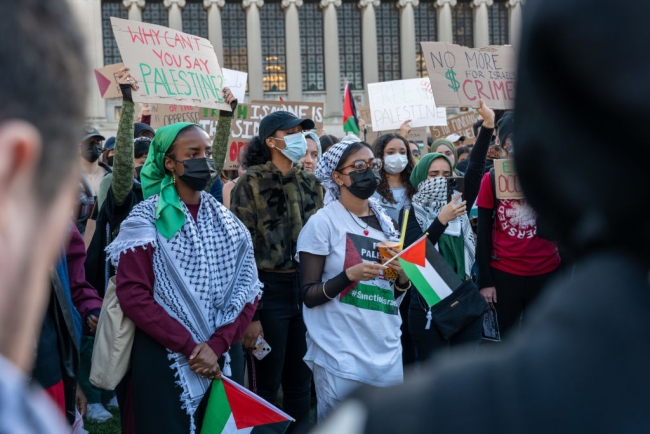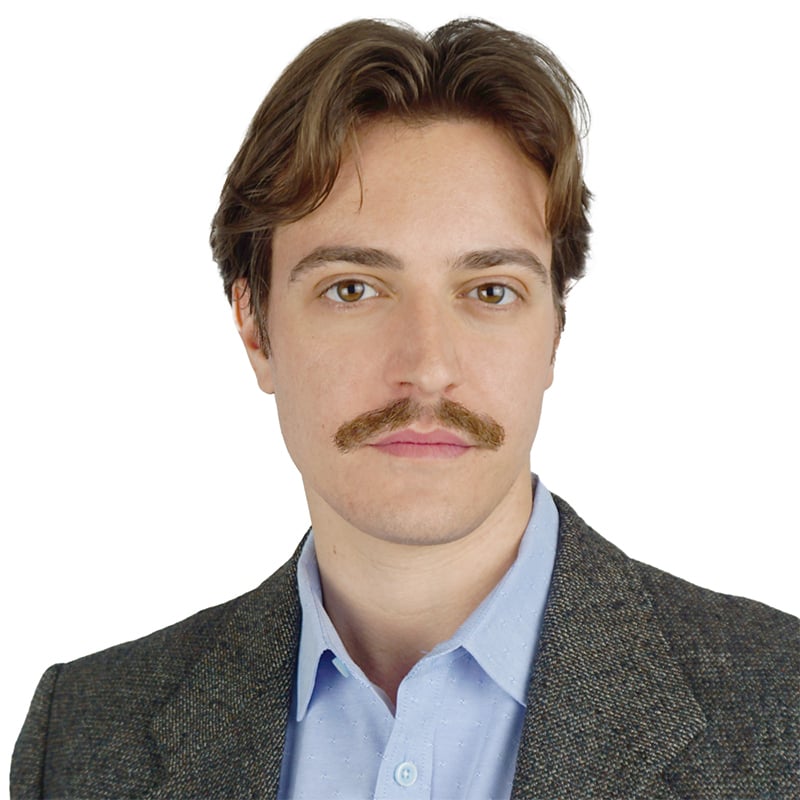You have /5 articles left.
Sign up for a free account or log in.

Pro-Palestinian protestors at an October 12 event organized by two student groups that Columbia later suspended.
Spencer Platt/Getty Images
Columbia University administrators updated policies and altered language around student group events and protests in mid-October, shortly after large campus protests by Students for Justice in Palestine and Jewish Voice for Peace drew media attention, according to reporting from the Columbia Spectator that Inside Higher Ed confirmed independently.
The university later suspended both SJP and JVP on November 10, the day after the groups held a walkout. In announcing the suspensions, which the university said were due to the groups “repeatedly violat[ing] University policies related to campus events,” officials explicitly referenced the newly added language.
A university spokesperson told Inside Higher Ed that while “the special events process is not new,” clarifications were made in October.
“Our campus has been operating in a highly charged atmosphere where safety concerns are real, not theoretical,” the spokesperson wrote in an email. “In the days after October 7, faced with intense emotions on all sides and urgent demands for many events (vigils, protests and more), the University felt an obligation to restate and clarify these policies as clearly as possible to make sure there would be no misunderstanding of them.”
Screenshots of the university’s Student Group Event Policy and Procedure and University Event Policy before the Oct. 12 protests—taken from the WaybackMachine—and after show the specific changes. They include a 10-day advance notice requirement for approval of any “special events,” newly defined as being held outside or in excess of 25 attendees; assertions that the university has the right to “regulate the time, place and manner of certain forms of public expression”; and a clarification that administrators have “sole discretion” over punishment for student groups and their members.
The changes were made by a Special Committee on Campus Safety, which did not include any faculty or student members.
David Lurie, president of the Columbia chapter of the American Association of University Professors, said that university administrators making updates to student group policies on their own was an aberration and a “gross violation” of shared governance, superseding “well established, extensive procedures” for the sanctioning of students’ political speech.
“What they’ve done is taken something that should be running through existing disciplinary channels that involve our right of appeal, that involve advisory boards, that include faculty and student representation, and eliminated all of those,” he told Inside Higher Ed. “In its place they’ve created a kind of star chamber that is able to take these actions unilaterally.”
The Columbia spokesperson said that student group leaders were sent notice of the policy updates—what the spokesperson called “restatements” of policy—ahead of the walkout that ultimately led to the suspension of SJP and JVP.
“[The groups’] compliance with [the procedures] started to slip, and the [groups’] advisers issued numerous warnings that clearly laid out that failure to respect the required processes would have consequences,” the spokesperson wrote.
Student emails obtained by the Spectator confirm that the university asked representatives in the office of Undergraduate Student Life to send out notices of the changes to student groups on Oct. 25 and Nov. 7—the latter, two days before the walkout, specifically citing the 10-day approval requirement for events.
Lurie said that while he looks forward to further clarification from the university, he believes Columbia “created this new events policy in order to use it exactly as they did,” by suspending SJP and JVP.
At a plenary meeting of the University Senate Friday afternoon, shortly after the Spectator published its reporting, Columbia’s senior vice president Gerald M. Rosberg, who chairs the Special Committee on Campus Safety, confirmed the policy changes were made unilaterally by university leaders, including president Minouche Shafik, and took on an apologetic tone.
“I know I am going to be living with this for a long time to come,” Rosberg said, adding that the university was looking into “reexamining” the policy.
Lurie, who attended the plenary as an observer, confirmed Rosberg’s comments.
“My suspicion is there’s things [university administrators] did that they regret, and that they were looking for a way to walk back right now,” he said. “And I really hope they will, because this portends very poorly for the future of the university.”
The Columbia spokesperson did not respond to follow-up questions about the timing of the policy changes or Rosberg’s comments on Friday in time for publication.





